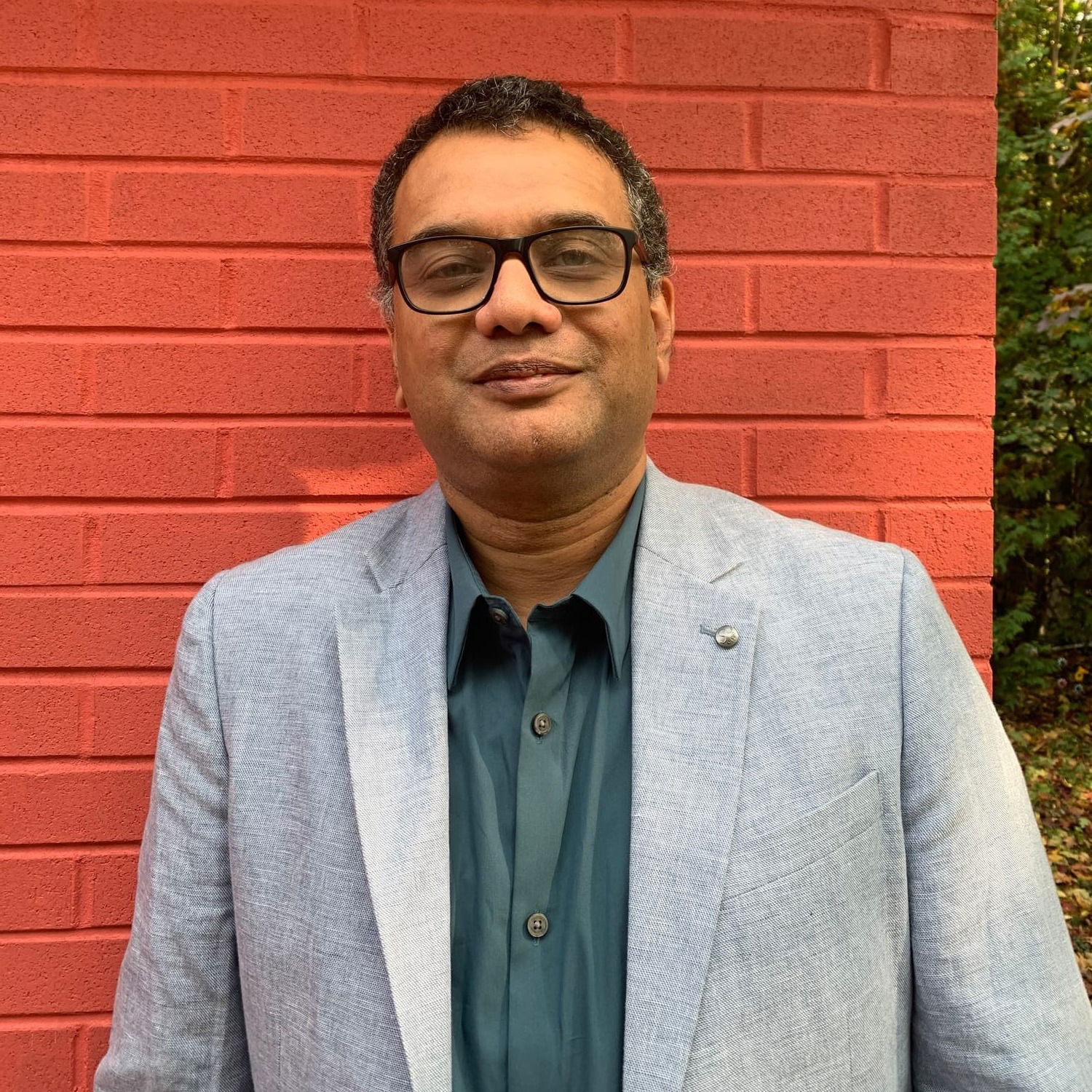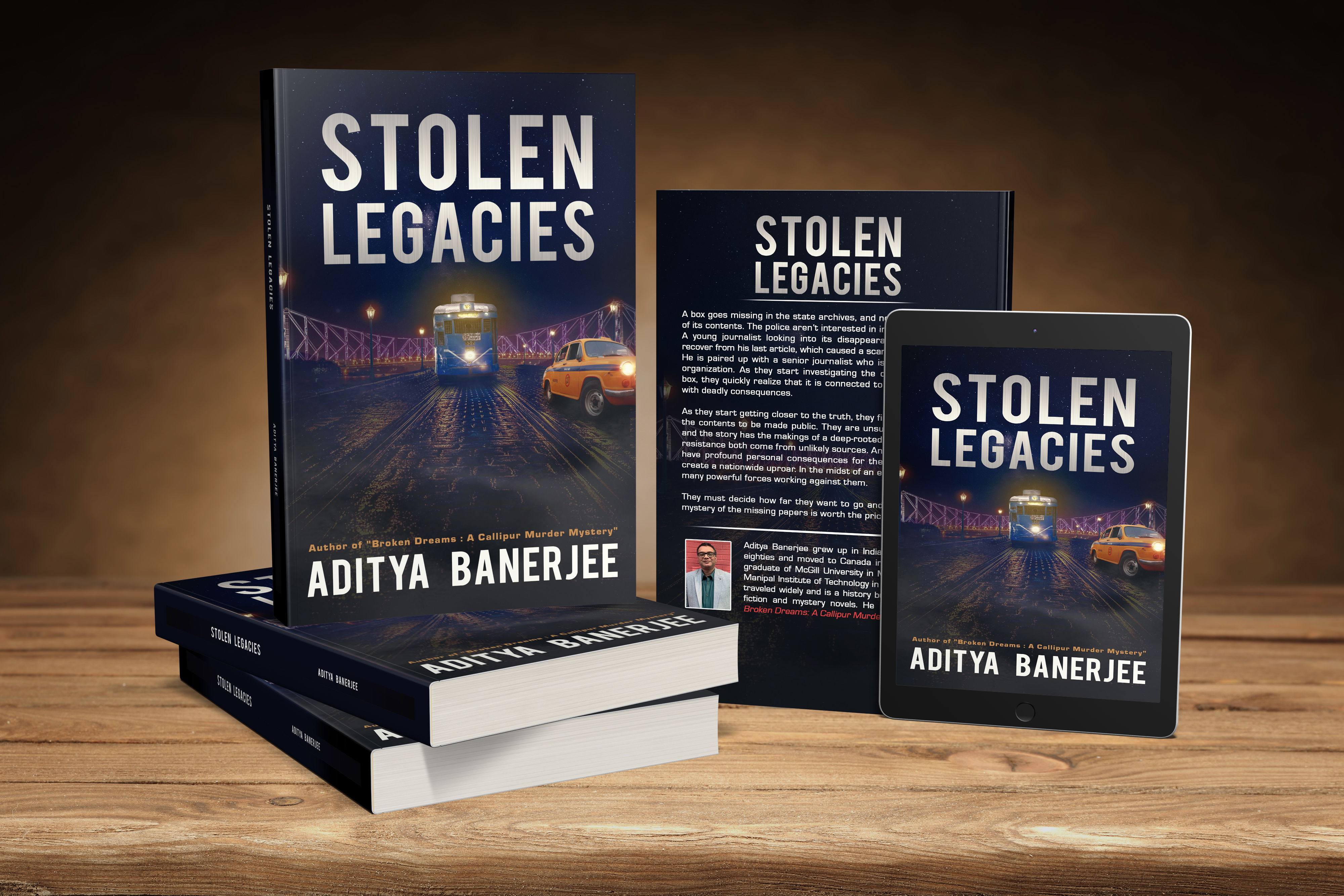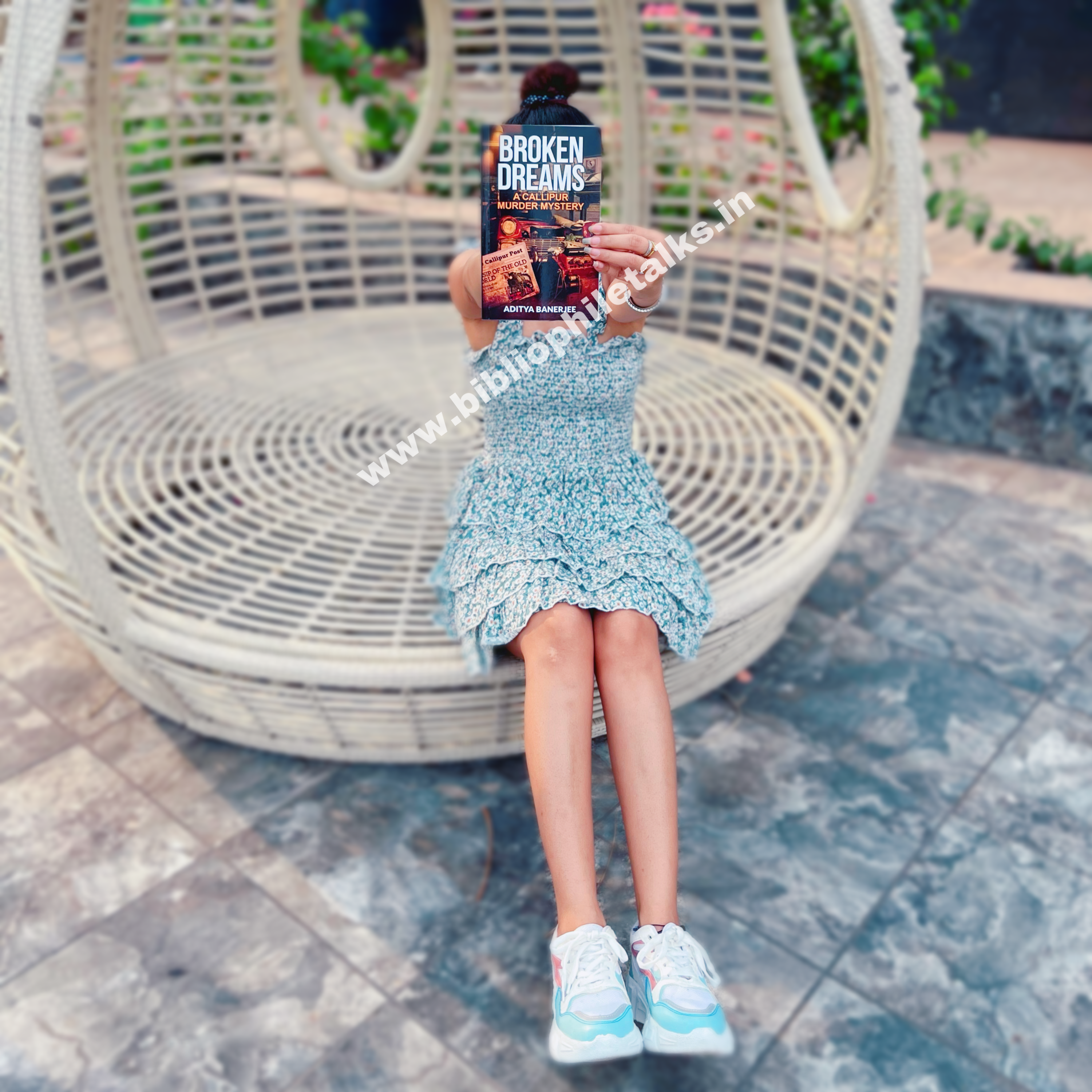Interview with Aditya Banerjee: Unearthing Mysteries in a Bygone Era

Welcome to an exclusive interview with the talented author Aditya Banerjee, the mastermind behind three captivating novels: "Broken Dreams; A Callipur Murder Mystery", "Death In The Walled City" and "Stolen Legacies." Aditya has taken us on thrilling journeys through the past, immersing readers in the pre-technology era. In this interview, we delve into his creative process, inspirations, and the unique allure of his historical settings. Get ready to uncover the secrets of storytelling in a bygone era with Mr. Banerjee.
1. Tell us about yourself, how you developed your passion for writing, and what inspired you to become an author.
Aditya: I have always been an avid reader of mystery and historical fiction. When it comes to writing, I have had a notebook for as long as I can remember where I scribbled ideas for stories and plays. The more I read, the more I realized that I should put my own words into action. Finally, when I did start writing my first full-length novel, Broken Dreams: A Callipur Murder Mystery, I realized how much I enjoyed the process.
2. Tell us about your first published book. What was the journey like?
Aditya: My first published work was Broken Dreams, A Callipur Murder Mystery. The journey to bring the story to fruition was nothing short of exhilarating. I absolutely loved coming up with the plot, making changes, revisiting scenes, and rewriting the dialogue. I also enjoyed the other aspects – the multiple rounds of editing, coming up with the cover design, and figuring out how the publishing process works.
3. Please tell us what you enjoy most about writing. What is your favourite part of being a writer?
Aditya: I love coming up with the plot and then creating the characters that become an integral part of the story. I take my time, enjoy the process, and stay away from deadlines. I don’t like to treat the story like a project that needs to be completed by a certain date. It’s a journey and I don’t want to rush things. The best part of writing is letting your mind wander, imagining things, and creating something meaningful.
4.What have you found to be most challenging about writing?
Aditya: Finding time to write every day has to be the most challenging aspect for any writer. A writer wants to set aside time each day to enjoy this wonderous pursuit. However, it isn’t always easy, and sometimes even if you find the time, you are not mentally in the zone to carry your story forward. Dedicating a specific time and place during the day and having the discipline to follow through with it helps, but it isn’t easy.
5. Have you ever experienced writer’s block? How did you deal with it?
Aditya: I haven’t experienced writer’s block – at least not yet. Yes – there are times when I am tired and I want to get away from my desk. But I don’t recall ever staring at a blank screen and not wanting to fill it up with something that’s going on in my head.
6. What do you like to do when you’re not writing?
Aditya: I travel a lot as part of my job and with my family. I love to read. I firmly believe that to be a good writer, one must be an avid reader. I love long walks that help me immensely in coming up with new stories and ideas for my books. Apart from that I am also into photography, something that I have been pursuing since my school days.
7. What is your real-life work schedule like when writing? How many hours a day do you write?
Aditya: I try to dedicate some time each day to writing something. Usually, I try to stay away from fixing a duration. Some days I might spend two to three hours writing while others may spend an hour or less. Usually, on weekends it's easier to find large blocks of time to write. On some days I dedicate the allocated time to jot down ideas in a notebook if I don’t feel like hammering the keyboard.
8. Where do you get your ideas for your books?
Aditya: In one word: imagination. Most of my books are either mysteries or historical fiction or both. Sometimes it could be articles or editorials that I may have read somewhere that will trigger an idea and at other times it could be a memory of an interesting character I may have met during my travels or anecdotes that I may have heard from someone.
9. What makes a great story?
Aditya: The plot, the characters, and how the writer weaves them together. It is essential to find that balance and I think all writers struggle with it – I know I do. For me a great story is something that will resonate with you, make you go through a range of emotions, challenge you, make you think, and above all take you on an enjoyable journey.
10. What does literary success look like to you?
Aditya: The book has to be appealing to readers of multiple genres. What I find most satisfying is when a varied group of readers across different nationalities, ethnicities, and age groups tell me that the story resonated with them. Of course, there is a business aspect to success as well and I’d be hard-pressed to find a writer who doesn’t want to have his or her work to be a best seller. So, I’d say a bit of everything – a story that the writer loves, readers enjoy, and has reached a large audience.
11. What kind of research do you do, and how long do you spend researching before beginning a book?
Aditya: All the books that I have written have involved quite a bit of research. I’d say the books on historical fiction and the ones that span multiple genres like Stolen Legacies, A Strange Endowment (yet to be published), and A Royal Conundrum (yet to be published) required considerable research. I think that’s part of coming up with the plot - ensuring that there are no inaccuracies and most importantly validating that the storyline matches the period when the events took place. It took a few months to research the material for each of the above novels. There is no hard and fast rule as to how long that research will take and it's not just reading about what happened during the time period from other books – sometimes it involves reading journals, research papers, and period pieces – and they all become integral parts of the story, not explicitly but by way of the background, places, events, etc.
12. What are your favourite literary journals? Share some of your favourite books with our readers.
Aditya: I regularly read “The Atlantic” which is a good literary magazine for not only fiction but non-fiction and poetry as well. While living in the UK, I fancied the “London Book Review” for their essays on various subjects. Once in a while, I pick up the “New Yorker” and it never disappoints – it seems to have an eclectic group of writers and contributors.
In terms of books, it is really hard to choose only a few – but here are some of my all-time favourites (and in no particular order):
Wuthering Heights by Emily Bronte
Kane and Abel by Jeffrey Archer
The Spy who came in from the cold by John Le Carre
To Kill a Mocking Bird by Harper Lee
Treasure Island by Robert L. Stevenson
Dune by Frank Herbert
Murder of Roger Ackroyd by Agatha Christie
13. Do you read your book reviews? How do you deal with bad or good ones?
Aditya: Book reviews are a bit of a strange phenomenon. When I published my first book, I checked the reviews regularly, almost daily, to see how the book was doing in terms of sales and reception among the readers. But I quickly realized that although reviews are important, they aren’t necessarily a barometer of the work’s quality or success. Now, a few years and three books later, I still read the reviews – but maybe once every fortnight and with a grain of salt.
In terms of bad reviews – well, when you decide to put your work out there, some readers will like it, and some won’t. So, yes getting a bad review is never a positive, but it doesn’t bother me too much.
14. Do you try more to be original or to deliver to readers what they want?
Aditya: On this one, I can safely state that first and foremost I write something that I love and would enjoy reading myself as a reader. While writing, I rarely think about what readers want. I try to satisfy myself first and figure out whether it’s a good story with interesting characters and a compelling plot. I have been to some literary events where some publishers and editors have been vocal about wanting writers to write what readers want to read and I know where they are coming from. But so far, I have tried to stay away from that and have focused on writing something that I find appealing and interesting myself.
Releasing Soon!!

15.How did publishing your first book change your process of writing?
Aditya: It didn’t. What I quickly realized, and it was a steep learning curve, was that writing and publishing are two related but completely different activities. Publishing is a business, while writing isn’t. I fully understand the publisher’s viewpoint and I get the business side of things. I appreciate the risk a publisher takes and the work they put into, in order to make a novel and the writer a success. To that end, I am always willing to take the input of the publisher in the entire publishing process. However, writing in itself is different from publishing. My process of writing the novel itself hasn’t changed all that much since writing my first book. What I can say is that now I am more cognizant of what an agent or a publisher needs. So, I am ready with the query letter, synopsis, author bio, and other material that is needed before engaging with them.
16. How can you strike a balance between presenting information to the reader effectively and ensuring their needs are met?
Aditya: I think if a story has a great plot with compelling characters, then readers will enjoy reading the book. It’s difficult, at the outset, to write a book thinking about meeting what the readers want at all times. As I stated before, the best approach is to write something that you love and enjoy with all the elements of an engaging story and hope that the readers like it too.
17. What might your next book be about? Please provide information about the books you have published as well.
Aditya: My next book is entitled “A Poet’s Ballad, A Crossword Mystery”. It is set in the early ‘80s in Benares and as the title suggests is a mystery although not along the same lines as my previous books. It’s a charming, wistful tale about two characters who find themselves at major crossroads in their lives; one because of their own choices and the other due to parental and societal expectations. Overall, it’s a riveting mystery with a dash of romance.
My previously published works are all mysteries and historical fiction.
-Broken Dreams is a gruesome murder mystery based in the small town of Callipur in the ‘70s. It has an engaging plot with many twists & turns, a young detective, and an ambitious reporter trying to solve the crime. The story also weaves through the social norms of the post-emergency era in India where people were just coming out of a tumultuous period and were wary of institutions.
- Stolen Legacies is set in the mid ‘70s. The story revolves around a murder and a conspiracy related to the abolition of the Privy Purse and the disappearance of documents from the state archives that hide a deep-rooted secret. It tackles both corporate and institutional corruption as seen through the eyes of a young, struggling journalist.
-Death in the Walled City reunites some of the protagonists from Broken Dreams with the riots in the early ‘80s in Old Delhi and their aftermath taking center stage. Nothing is as it seems and as the investigation progresses, things become murkier and the truth is much more complicated. The intriguing mystery baffles both the police and the media and the story once again deals with the pressure each institution faces in uncovering what really happened.
18. I've read your all books: "Death in The Walled City," "Stolen Legacies," and "Broken Dreams." I thoroughly enjoyed each one of them. Your skilful portrayal of the pre-technology era in these crime thrillers is remarkable, and it's evident that you conducted extensive research. Could you please share the inspiration behind your choice of the 'Pre-Technology' era as the theme for your books?
Aditya: First of all, I appreciate you taking the time to read my work. More importantly, I am happy that you enjoyed the stories. Yes – a lot of research did go into each of these novels. My stories are set in the age of rotary phones and times when people relied on newspapers and radio to get their news and information. It adds a unique dimension to the stories, the manner in which the investigations are conducted, the societal norms & biases at the time that played heavily into the mindset of the characters, and the way the events unfold and are perceived by the folks of the era. Things obviously have changed over time and arguably a lot for the better in terms of the tools that are used for investigating crimes, the mindset of the people, etc. – but the ones I chose to write happened in the ‘70s and ‘80s and that meant creating an atmosphere in the books that reflects that era and I thoroughly enjoyed it. What I find appealing about that era is that investigations had to rely more on the human element, psychology, and intuition and less on technology.
19. Share some advice for aspiring authors. What advice would you give to your younger self?
Aditya: Oh, this makes me sound so old! For aspiring authors, I’d say – take the plunge, write something that you want, write anything! Don’t worry about whether others will like it or not – just do it for yourself – let your imagination run wild. I’d also say (and I wrote some of this in my next novel): that it’s never as good or as bad as it seems, enjoy the journey, and try to make a difference if you can – there isn’t time for anything else.
To my younger self, I’d say the same thing as I stated above and perhaps add that it’s alright to laugh a little more at yourself and not worry too much if things don’t work out – it's part of life.
I want to convey my heartfelt appreciation for the time you've shared. It's been an incredible experience discussing your journey as an author and your upcoming book, "A Poet’s Ballad, A Crossword Mystery". The synopsis you've shared for 'A Poet’s Ballad, A Crossword Mystery,' set in the technology-free landscape of the 80s, has piqued my interest. Your thorough research into this period truly shines through in all your books, which I've devoured with great enthusiasm.
I extend my best wishes for your future literary endeavors, confident that they will continue to captivate and impact readers like myself. Your unique perspective and storytelling prowess are bound to leave an indelible mark.
Once again, I want to express my gratitude for your invaluable insights and for graciously dedicating your time to engage in this enlightening conversation.
Connect With Author Aditya Banerjee:
Instagram: https://www.instagram.com/
Facebook: https://www.facebook.com/
E-mail: adityab9900@gmail.com
Click here for the review of "Broken Dreams"






